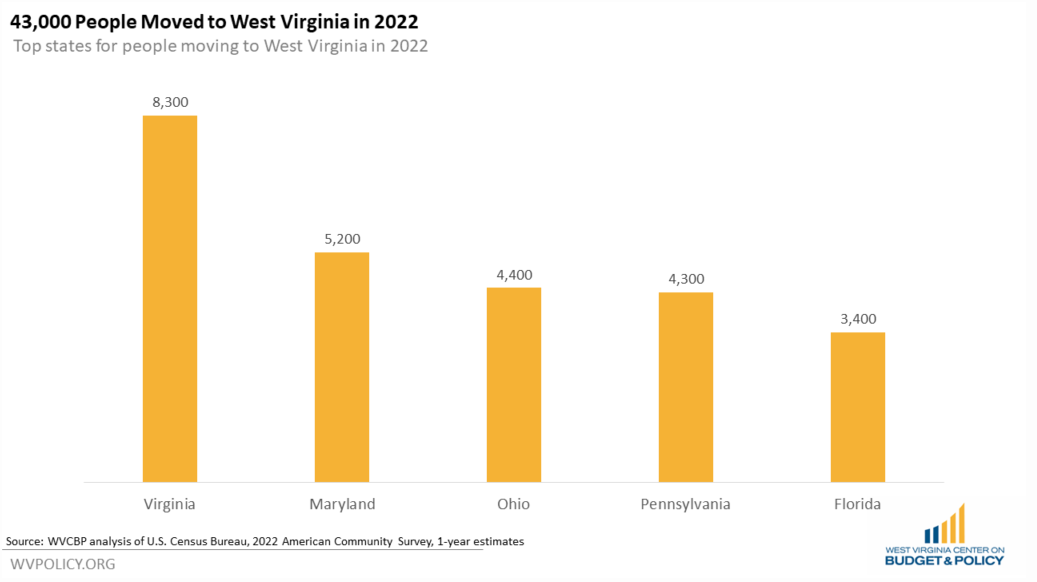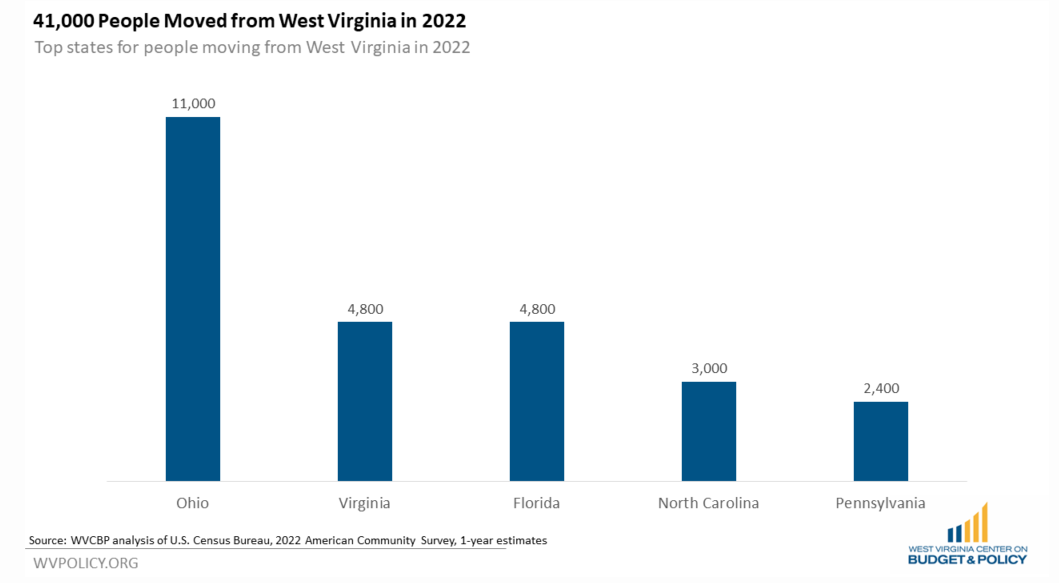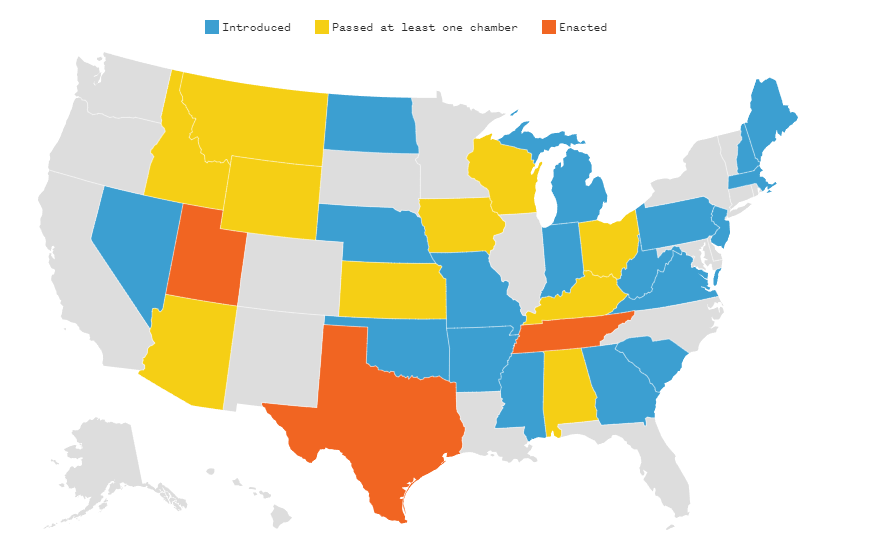Could West Virginia's DEI Rollback Drive Away State Immigration? The Economic Risks of Losing Diversity

West Virginia’s Crossroads: Immigration, DEI, and Economic Revitalization
Our state is at a pivotal moment in our history. With a shrinking population, declining industries, and ever increasingly stagnant economy, we face mounting challenges and the loss of opportunity in rebuilding West Virginia. One piece of the potential solution lies in immigration—an avenue of population growth where the state has seen success over the past decade. According to the Census Bureau, West Virginia’s foreign-born population has grown by 40%.
However, the recently passed rollback on Diversity, Equity, and Inclusion (DEI) programs in the state legislature could pose a potential threat to this possibility. This is what I specifically want to tackle in this week’s post: Is the rollback of DEI in West Virginia beneficial for the state? Could immigration—both from abroad and neighboring states—be a crucial part of revitalizing our economy?


Economic Struggles and Opportunities
West Virginia’s economy has long been dependent on the energy economy, exporting large amounts of coal to neighboring states. The automotive industry has also become a major staple, employing around 3% of the state's working population. But as these sectors have declined, the state has struggled to transition to a more diversified economy. The following issues show the scale of the problem:
- The state’s population has been shrinking for over a decade, with young professionals leaving in search of better job prospects, most notably being engineers.
- Unemployment rates in some counties remain higher than the national average.
- West Virginia’s GDP growth lags behind most states, signaling economic stagnation stemming from a myriad of problems.
This decline has created a vicious cycle: fewer workers mean fewer businesses can thrive, leading to limited economic growth and reduced tax revenue, and pushing businesses away from moving to the state. It’s something that, originally being from Charleston, has been heartbreaking to witness.
The Role of Immigration in Economic Revitalization
Immigration has been a source of economic revitalization, or at the very least economic relief, time and time again in the past. Take Pittsburgh, for example—it was a city that faced years of population decline and economic stagnation following the collapse of the steel industry. However, in recent years the city has leaned on immigrants and refugees to revitalize its economy. Immigrant-owned businesses now contribute up to 11% of the local economy, and the influx of diverse talent has helped transform Pittsburgh into a major hub for healthcare, education, and tech innovation.
This transformation didn’t happen overnight, but it shows how embracing immigration can turn the tide for regions facing economic and demographic challenges similar to West Virginia’s. States like Iowa and North Dakota, which face similar demographic challenges, have successfully used immigration to address workforce needs and encourage economic growth.
If West Virginia implemented policies to attract and support immigrants, it could experience similar benefits. Immigration could provide an influx of young professionals, like much needed teachers and trade workers, fill labor shortages in struggling industries, and potentially lead to new businesses and job creation.
DEI Rollback: A Double-Edged Sword?
While I am not claiming my thinking is flawless, legislation like the DEI rollback could pose a potential threat to this line of thought. DEI is commonly thought of as a set of policies aimed at ensuring inclusivity for groups such as the LGBTQ+ community and racial minorities. Governor Morrisey has claimed that the rollback is designed to protect West Virginians from "preferential treatment" toward certain groups, which can be seen as directly opposing the aims of DEI.

One point of clarity I want to share is that the signed executive order for the DEI rollback does not outlaw DEI programs from schools. What the order prevents is state funds being used for such programs and makes training for such programs non-mandatory. This means, as I interpret it, schools and universities (such as WVU, which has an entire division dedicated to DEI) can maintain their programs if these programs are funded privately by the school.
The Impact on Higher Education and the State’s Workforce
This topic is particularly sticky for me. One example of something that falls under DEI is racial preferences in university admissions. For instance, if a person of color wanted to apply to attend WVU, they could potentially be placed on a list of preferred applicants based on race.
It should be clarified that universities are not required to publicly disclose whether they use preferential admissions, so I’m only using WVU as an example. This is not to suggest that WVU currently admits students this way.
The decision of DEI rollback in West Virginia—a state whose population is 93% Caucasian–was meant to prevent preferential treatment and had the intentions of moving to a system where admissions to higher education is based more on a student's merit and, as said by state officials, the adversity students have faced in their lives rather than meeting a diversity quota for the school.
The primary reason I bring this up is because DEI is a significant issue that prospective residents and workers, particularly from diverse backgrounds, may consider when deciding whether to move to West Virginia. If someone values DEI policies, the fact that West Virginia has rolled them back could be a deciding factor in whether or not they move here.
Could This Push Away Talent?
This concern may not be limited to students. Teachers—although they are already in short supply—may be deterred by the state’s stance on DEI. The state’s education system faces many challenges, from quality and accessibility to job security and teacher pay. As the state grapples with a massive teacher shortage, it’s difficult to argue that West Virginia can afford to push away trained educators
Striving for the Best for West Virginia
This is my initial analysis of the situation and the key points to consider. While I’m not claiming to have all the answers, my bottom line is simple: I want to see West Virginia thrive. Whether through attracting immigrants or reconsidering policies like the DEI rollback, my goal is to support initiatives that will help lift this state from its current struggles. I’m looking for real dialogue here—if you disagree with my points or have something I didn’t cover, I’d love to hear your thoughts comments just below the citations.
Thank you for reading!
For more details on the DEI rollback, you can refer to Executive Order No. 22-21 by Governor Jim Justice here.
Work Cited:
"American Community Survey." U.S. Census Bureau, 2021, https://www.census.gov/data.html.
"Automotive Industry Employment." U.S. Bureau of Economic Analysis, 2021, https://www.bea.gov/data/employment.
Mazzocchi, Alexis. "How Will Gov. Morrisey’s New DEI Executive Order Impact WVU?" WBOY, 23 Jan. 2025, https://www.wboy.com/news/monongalia/west-virginia-university/how-will-gov-morriseys-new-dei-executive-order-impact-wvu/.
"Population Clock." U.S. Census Bureau, 2021, https://www.census.gov/popclock.
"Unemployment Data." U.S. Bureau of Labor Statistics, 2021, https://www.bls.gov.
"Gross Domestic Product by State." U.S. Bureau of Economic Analysis, 2021, https://www.bea.gov/data/gdp/gdp-state.
"Immigrant-Owned Businesses in Pittsburgh." Migration Policy Institute, 2020, https://www.migrationpolicy.org.
"Immigration in the Midwest." Brookings Institution, 2020, https://www.brookings.edu.
"West Virginia DEI Rollback." West Virginia Legislature, 2021, https://www.wvlegislature.gov.
"Affirmative Action and Racial Preferences in Admissions." National Center for Education Statistics, 2020, https://nces.ed.gov.
"Census Data Shows Most Migration to and from West Virginia Happens in-State or Nearby." West Virginia Center on Budget and Policy, 16 Jan. 2025, https://wvpolicy.org/census-data-shows-most-migration-to-and-from-west-virginia-happens-in-state-or-nearby/.
Member discussion